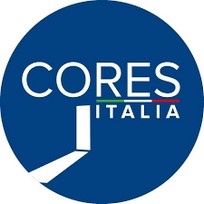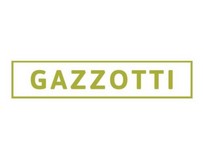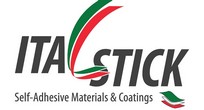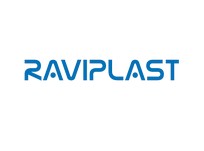REGENERATED COMPANIES
Trace the history of the companies that compose the museum.
In this section, you will find stories of companies that have been saved through processes of Workers BuyOut and the workers involved in these Co-operative Regenerations.
3ElleN
In 1908, 15 members founded the co-operative “La Lavorazione del legno” (woodworking) in Imola. The aim was to provide work to students who graduated from the local school of arts and crafts “Alberghetti”. Nevertheless, the co-operative has soon become an important entrepreneurial reality, in a territory characterized by a strong presence of mutualistic and co-operative culture.
A leading company in the window, door and window frames sector, 3ElleN has represented for decades a co-operative excellence in the Imola production district, opening over the years to the international market and innovation.
The deep crisis in the building sector, starting in 2008, made the co-operative’s activity complicated, and in 2014 it entered into an arrangement with creditors. The 256 employees of the co-operative were expected to be fired.
In January 2015, sixty employees decided to use their indennità di mobilità (allowance for workers under redundancy pay scheme) to take over a branch of the old co-operative to create an atypical WBO: a co-operative created from the ashes of another historical co-operative in the Imola area.
Art Lining
In 2008, the Lincra of Sant’Ilario d’Enza went bankrupt. This company from the town of Sant’Ilario d’Enza (RE), which specializes in the interior design of ties, had to face the wrong business choices and competition from the Eastern market.
The company’s employees faced unemployment, but eleven of them ( eight of them are women) decided to invest personal resources to buy back the company, which produces tie interiors for some of the main Italian haute couture brands, such as Armani, Zegna and Ferragamo.
Step by step, also thanks to the role of the institutions and trade associations, the company started to grow again, managing to stay in the international market and to guarantee employment levels, continuing its efforts to “give a soul to the tie”.
Cores Italia
CoopLegno was founded in 1947 Spilamberto di Modena and soon became one of the most important companies in Italy in the production of doors and windows. At the end of the seventies the co-operative moved to the new plant in Castelvetro di Modena.
In 2014, the co-operative opted to merge with a company from Reggio Emilia, Cormo, creating Open.co. But the consequences of the economic crisis, which had an impact on the construction sector, quickly led Open.co to liquidation. The loss of jobs for a few hundred workers was a serious eventuality.
One hundred and five Open.co workers thus gave life, in the autumn of 2017, to Cores Italia, which specializes in the production of doors, expanding its market horizons. The ancient entrepreneurial tradition of CoopLegno is carried on by a new co-operative entity, which maintains its headquarters in Castelvetro.
Gazzotti 18
Founded in 1910, Gazzotti, which is based in Trebbo di Reno (BO), has been for decades a leading company in the field of high quality wooden floors, producing parquet for the royal home and for the showrooms of some of the most important Italian high fashion brands.
The construction sector crisis and the Croatian government’s decision to block exports of oak led the company (which later became Bopar) to bankruptcy.
In the autumn of 2018, after several years of difficulties, 18 employees, supported by Legacoop Bologna, chose to take over a branch of the company, thus creating a new co-operative, Gazzotti 18.
Greslab
Greslab has its roots in the ceramic district, between the provinces of Modena and Reggio Emilia, in Scandiano (RE); a territory characterized by a rich and lively productive fabric, but deeply affected by the consequences of the 2008 economic and construction crisis.
For years, the Ceramica Magica brand has represented an international point of reference for the sector; the US real estate crisis, a fundamental market for this company, led Ceramica Magica to go into composition with creditors and, in 2008, to be spun off, with the loss of numerous jobs.
About thirty employees of one of the two production units thus founded, in 2011, a new cooperative, Greslab, reactivating production and carrying out, with the support of the institutions and Legacoop, an industrial project and an investment plan.
The experience of the WBO subsequently expanded to other partners (to date there are 54) and has extended to new markets and new production horizons.
Italstick
In August 2009, PCA, formerly Diaures S.P.A., went into liquidation due to financial problems. It was one of the hardest years of the economic crisis and after years of layoffs and daily difficulties, there was a real risk of dismissal for its seventy employees.
Between 2010 and 2011, the company, which is based in Soliera (MO), was bought, with considerable effort, by twenty-four of its employees, who can thus continue to produce self-adhesive materials for the label market.
Initially, the difficulties were numerous, but almost ten years after the regeneration of the company, turnover has increased exponentially, and the market has expanded to other parts of Europe and the world.

Laundromat Girasole
The reorganization of Servizi Ospedalieri S.P.A., a company controlled by Manutencoop, led in 2013 to the closure of the industrial laundry in Porto Garibaldi, in the municipality of Comacchio (FE), a company working mainly for health and care facilities in the Delta area, employing a majority of women.
Between 2015 and 2016, fifteen workers, including twelve women, chose to revive the industrial laundry in Comacchio, creating a new co-operative entity, the Laundromat Girasole, through a workers buyout supported by Coopfond and the local institutions.
Methis OfficeLab
The history of Methis OfficeLab has distant roots, deep in the history of the co-operative movement in Emilia. In 1961 the Cooperativa Nazionale Muratori e Manovali di Sant’Ilario d’Enza (Reggio Emilia) Coperfer, which produces metal materials for the building industry, was created.
At the end of the 1960s, Coperfer acquired the company Metallufficio; ten years later, Metallufficio joined Coopsette, becoming a division specializing in the design and production of office furniture, following the evolution of this sector over the years.
The Office Furniture Division soon became a leading company in the sector, Methis, but the consequences of the economic crisis hit the building sector hard, and Coopsette was no exception.
In June 2017, twenty-five Methis employees acquired the branch of business in which they worked, creating Methis OfficeLab, based in Campegine (RE).
Raviplast
n 2010, the ancient industrial history of Nuova Pansac S.P.A. was shattered by wrong business choices that put the survival of the group and hundreds of jobs at risk. Pansac is a great productive reality, specialized in the production of packaging. Production is divided between Veneto and Ravenna, where Pansac has been operating for over a century.
At the end of the extraordinary administration, some of the employees of the Ravenna branch of Pansac decided to buy a branch of the company, guaranteeing the continuity of production and creating a new working co-operative, Raviplast.
The WBO in Ravenna was made possible thanks to a dialogue and active support from institutional bodies and trade associations, which assisted the 23 members in the realization of the project.
Photographic content made with photographic material from Banca Etica
Made and Designed by Hibou Coop









